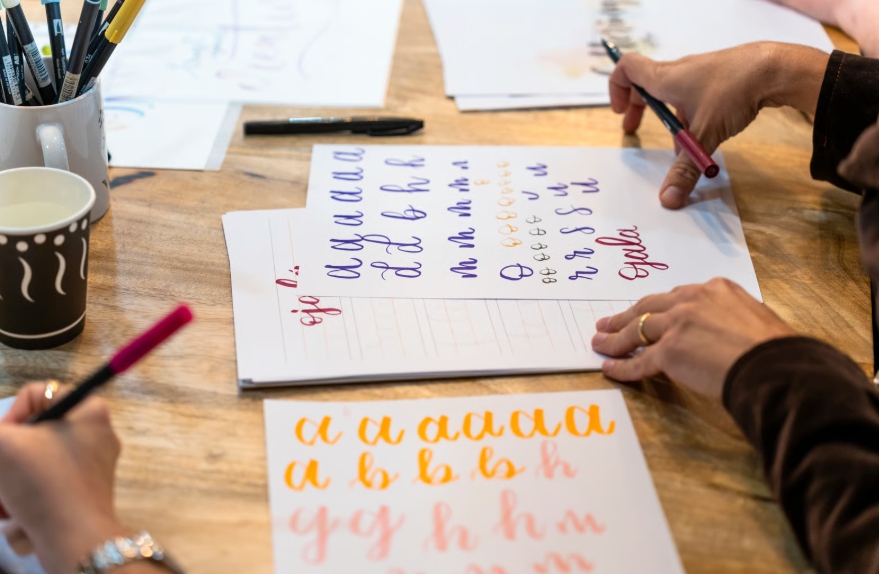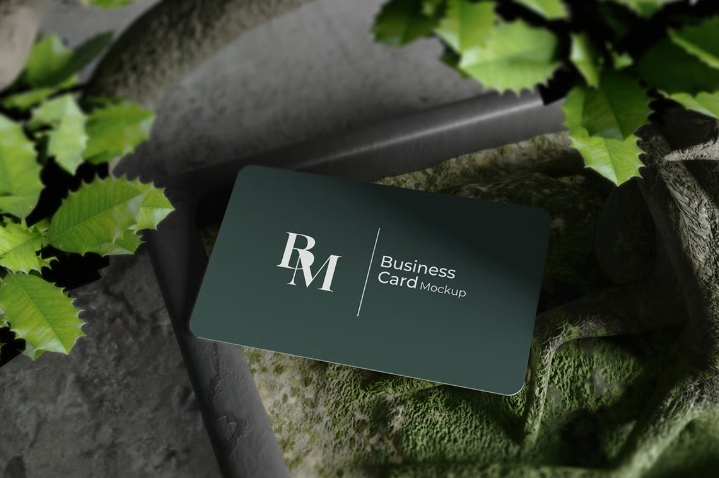Key Takeaways
Including a photo on a business card can help build recognition and trust when aligned with the brand’s professional image.
- Photos support personal connection. A clear, friendly image helps people remember who they met and makes follow up easier.
- Image quality matters. High resolution photos with good lighting and a neutral background maintain a professional appearance.
- Placement should feel balanced. Photos work best when integrated into the layout without overpowering contact details.
- Not every role requires a photo. Personal service industries often benefit more than corporate or strictly formal fields.
- Design consistency is important. The photo style should match overall branding, tone, and print quality for a cohesive look.
Images play a key role in communication. While having just your name and title on a business card is a traditional choice, it might not grab the attention you want. So, you might wonder, “Can I put a photo on my business cards?”
Absolutely, yes you can! You can customize your business cards by adding photos, personal information, logos, and colors to make them more personal and unique.
However, like any design choice, it’s important to execute it well. Let’s explore the world of photo business cards and discover how to make them truly work for you.
The Importance of Business Cards
Business cards are an essential tool for establishing a professional presence and making a lasting impression on potential clients, partners, and colleagues. A well designed business card helps you stand out from the competition and leaves a memorable impression.
Establishing Professional Presence
A business card is often the first point of contact between you and a potential client or partner. It’s an opportunity to showcase your brand, values, and personality.
A professional looking business card can help establish your credibility and trustworthiness, making it more likely for people to take you seriously.
First Impressions Matter
First impressions matter, and a custom business card is often the first impression people have of you and your business.
A thoughtfully crafted business card can create a wonderful first impression, while a poorly designed one can have the opposite effect. Make sure your business card is eye catching, professional, and accurately reflects your brand and values.
Why Include a Photo on Your Business Card?
Now, let's look into why adding photography to your card can be a game changer.
Personal Connection
A photo instantly adds a personal touch, making you more approachable and building trust. People who see your face feel a stronger connection and are more likely to remember you.
Including a friendly smile and a detail reflecting your personality or profession (like a subtle background or prop) makes your card even more distinctive. People are much more likely to recall a face and specific details than just a name and title.
Research indicates that people are more likely to remember information when presented visually, with studies showing that 65% of information is retained when accompanied by a relevant image, compared to just 10% with text alone.
Building Trust
Particularly in service focused fields (real estate, consulting, coaching), a headshot can be a powerful tool for building trust. It humanizes your brand, making you appear more approachable and creating a sense of personal connection.
Showing your face builds trust and credibility by demonstrating transparency and confidence.
Visual Branding
Your business card makes a powerful statement in visual fields like photography and design. Including a high quality headshot alongside your logo and a key image demonstrates your skill and establishes instant credibility.
This immediate visual representation of your work strengthens your brand identity and helps potential clients understand your style and capabilities at a glance, enhancing your overall visual branding.
Differentiation
A photo is a powerful visual tool for brand differentiation. When potential clients receive numerous business cards, a card with a professional photo is more likely to catch their eye and leave a lasting impression.
It instantly sets you apart from the standard text based cards, making you more memorable and creating a stronger visual impact.
Reinforcing Brand Identity
If your personal brand is built on your visual presence (e.g., influencers, public speakers, artists), a photograph is not just an option; it's a necessity. It reinforces your brand identity by providing a tangible visual representation of who you are.
Consider how your picture aligns with your overall brand aesthetic: lighting, background, and pose should all contribute to your desired image.
By strategically choosing a headshot that reflects your brand's message and values, you create a powerful and consistent visual identity that resonates with your target audience. This reinforces your brand identity and makes you instantly recognizable.
Headshots: A Powerful Tool for Connection in Key Industries
While a professional headshot can enhance any business card, certain industries find it particularly beneficial. Fields like real estate, where building trust and rapport is crucial, often utilize headshots to create a personal connection from the first interaction.
Similarly, consultants, coaches, and therapists leverage photos to establish credibility and approachability. In the creative sector, including photographers, designers, and stylists, a headshot showcases both professionalism and personal style, giving potential clients a glimpse into their unique brand.

Best Practices for Business Card Photos
Ready to make it happen? Here are some easy to follow tips for designing an eye catching and professional business card with a photo.
Professional Quality
This is non negotiable. Use a high resolution, well lit photo taken by a professional photographer. Avoid selfies, snapshots, or blurry images.
Headshot Focus
A clear headshot is generally the most effective. Ensure your face is the central focus and avoid positioning objects too closely to the subject's head to prevent a cluttered appearance.
Consistent Branding
Your photo should align with your overall brand aesthetic. Maintain consistency in style, color palette, and tone.
Appropriate Background
Choose a clean, uncluttered background that doesn’t distract from your face. Ensure there is enough space around the subject to avoid blending into the background and to enhance the overall image quality. A neutral or simple background is often best.
Correct Size and Placement
Maximize impact and minimize distraction by correctly sizing and placing your photo. Determine the focal point of your business card; if it’s your photo, make it prominent but not overpowering. Consider card orientation, as it influences photo placement.
Avoid overlapping text and use visual guides like rulers and guides for precise placement. Review the overall visual balance and legibility of all elements, including your photo, by holding the card at arm’s length.
Consider Your Industry
Some industries are more photo friendly than others. Creative fields often embrace photos, while more conservative industries might prefer a more traditional approach.
File Format and Resolution
Use high resolution images (300 dpi) for a crisp business card photo. This ensures your picture won't look blurry or pixelated when printed.
Choose JPEG for photos with lots of color, and PNG for images with sharp lines or transparency. Always double-check your file format and resolution before printing to guarantee a professional result.
Read More: PNG vs. JPG: What You Should Know
Maintain an up-to-date Headshot
Keep your headshot current and relevant. If your appearance changes noticeably, reprint your cards to ensure accuracy and maintain a consistent professional image.
Beyond Business Cards: Photos on Other Print Products
The benefits of including a headshot or images aren't limited to business cards. You can leverage visual impact across various print materials:
- Brochures and Flyers: Use photos to showcase your products, services, or team.
- Postcards and Direct Mail: A compelling image can grab attention and encourage recipients to read your message.
- Presentation Folders: Include a professional headshot or team photo to personalize your presentations.
- Greeting Cards and Thank You Cards: Add a personal touch with a professional headshot of yourself or your entire team.
- Posters and Banners: Use high impact images to promote events or products.
- Product Packaging: An image of your product or its usage can drive sales.
- Company Profiles: Pictures of your team or work environment create a more approachable company profile.
- Event Signage: Photos of speakers or past events can bring visual interest.
Final Thought
Incorporating a professional headshot or photo into your business card or other print materials is an excellent way to enhance your personal and professional brand. Imagine handing over a card that shares your name and your face, it immediately establishes a connection.
By embracing best practices and keeping your industry and audience in mind, you can craft marketing materials that are visually striking and memorable.
Remember, a picture speaks volumes; those volumes can transform into meaningful relationships and exciting opportunities in the business world. So go ahead, let your image do the talking!




